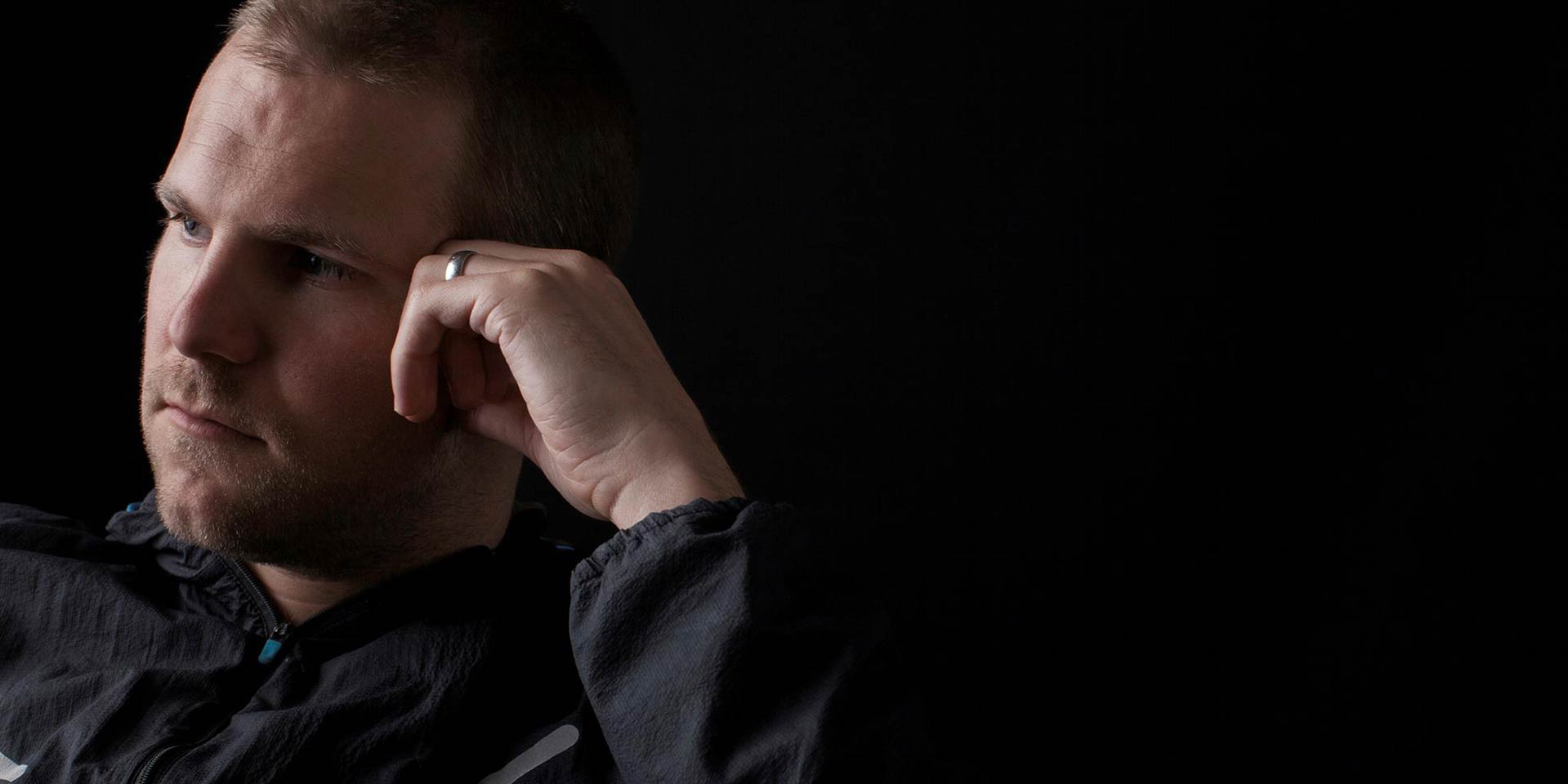“Everything is finite—except pain” (Mihai Eminescu, Reflections).
I remember an episode from my childhood that, I think, showed me for the first time how a devout person can still fail to truly know God, even after a lifetime of faith. It involved someone close to my grandparents, a grown man mourning the death of his mother. He told us that he was angry with God—because he had asked for only one thing: that He not take his mother away. And yet, God had refused to answer his prayers.
“Now I know in part…”
Of course, no one can claim to fully know the infinite, uncreated, eternal, all-powerful, all-knowing, and ever-present God. But His will for our lives, as revealed in Scripture, can be known well enough for us to build our faith on an authentic—though limited—understanding. We can know enough of the divine will to make conscious, informed choices. Then we are called to grow in faith, to mature, and to set aside “the ways of childhood” (1 Corinthians 13:11). This twofold process—of knowledge and faith—begins here, in this world, and continues into eternity.
What struck me most about that attitude—and others like it, where people grew angry, defiant, or even judgmental toward God—was that they seemed to relate to Him less as a divine being and more as a sort of Santa Claus who had failed to deliver, who had let them down. The reverence due to the Creator was missing; gratitude toward the Father who had given them everything they took for granted or believed they deserved had worn thin; the solemn awe before the divine Judge of our sins had faded; and the patience to wait for the day when all things would be understood—when the Redeemer’s plan is fulfilled—had run out. In other words, they no longer extended to Him the trust we naturally grant to anyone we consider reliable—let alone to God Himself. Yet that very trust is, in fact, another word for faith.
It may seem surprising that God compares His most faithful servants to chosen vessels—objects without consciousness, not even living creatures endowed with thought or feeling. And yet, these vessels become miraculous when filled with the Holy Spirit. Such vessels do not say of the potter, “You know nothing” (Isaiah 29:16); they allow themselves to be shaped entirely by His hand.
The apostle Paul perhaps best captures this humble attitude of obedience and trust in God when we cannot grasp the hidden meaning of things: “For now we see only a reflection as in a mirror; then we shall see face to face. Now I know in part; then I shall know fully, even as I am fully known” (1 Corinthians 13:12). Paul points to the objective limitations of our nature and of the world we live in—limitations that prevent us from seeing everything clearly.
But it is worth asking: what exactly will we see and know fully? Much has been said about beholding the face of God—a magnificent, unprecedented revelation, one granted only to angels. Yet that vision seems to encompass far more—it includes the very character of God, and with it, His justice. These are the things “we do not see” for now, invisible to human eyes and beyond the reach of our limited understanding (Hebrews 11:1), and yet they are what we hope for and trust to be truly His. That trust itself reveals the very essence of faith; no certainties or logical proofs can exist here. But as we draw nearer to the likeness we once shared with Him, before the fall—our human nature restored in Heaven—we will at last be granted the gift of perfect sight and complete understanding.
“For My thoughts are not your thoughts…”
No one can claim to understand the mysterious reasoning of God or the judgments He applies to human beings. Nor should anyone behave as if such things could—or should—be explained to them. Scripture is filled with figures who confess their bewilderment and even suggest they would act differently if left to decide on their own: Solomon observes that, in this world, the wicked often prosper while the good suffer, that even human achievements are born of envy, and that all seems “meaningless, a chasing after the wind” (Ecclesiastes 4:4); Job challenges God to reveal the purpose of his suffering; Hezekiah feels wronged at the thought of dying and pleads for an extension of his life; the two apostles, James and John—“the sons of thunder”—believe that unbelievers deserve to be struck down by divine lightning, and so on.
The reason we should withhold judgment or speculation about certain incomprehensible events—whether in the lives of others or in our own—is that we lack the full picture. We cannot perceive the total web of causes, conditions, influences, motivations, intentions, and consequences involved in everything and everyone. When Jesus was asked who had sinned to cause a man to be born blind—he or his parents—He replied that neither had sinned, “but this happened so that the works of God might be displayed in him” (John 9:3).
This answer does not dispel the mystery, but it does reveal its depth—and cautions us against judging things simplistically. Surely, each of us has experienced hardships or painful moments that later revealed an unexpected, enlightening, corrective, and ultimately beneficial purpose. It is the truth behind the old saying, “Every evil brings some good.” Illness can cure flaws of character; loss can lead to self-discovery; deprivation can yield inner richness; heartbreak can refine and elevate the soul; an accident can deepen one’s faith in God’s care; a threat can inspire courage.
Even Jesus Christ did not fully comprehend the purpose of every event in His earthly life. This is evident in His words on the cross: “My God, My God, why have You forsaken Me?” (Mark 15:34). Yet His attitude of humility, endurance, and unwavering trust in the Father remains exemplary: “Father, into Your hands I commit My spirit” (Luke 23:46).
It would be enough for us to embrace, in the spirit of imitatio Christi, this hopeful surrender and steadfast trust for the rest of our lives, for our future to grow brighter—not to be spared from suffering, but to find comfort amid the true battlefield of life.

“For true and just are his judgments”
For the believer, the very idea of divine justice finds its clearest expression in the prospect of the Last Judgment—a judgment that alone can encompass the infinite web of human cases and destinies intertwined throughout earthly life. From a rational standpoint, it is impossible to imagine a perfect, immanent justice: no single person, nor even the wisest of judges together, could ever comprehend and manage, on a planetary scale, the tangled causes and consequences of every human act that together form the story of humanity. How could they judge the guilt of those who waged wars, ruled tyrannically, obeyed or enabled such rule, grew angry and sinned, were both victims and executioners, or believed they served God while committing atrocities? And then—who would judge the judges themselves?
The believer, however, finds peace in the assurance that every injustice suffered will ultimately be addressed in God’s court. There will be no need to gather evidence, summon witnesses, or prepare a defense. Divine judgment will be complete and perfect, restoring not only personal justice but also the moral balance of the entire created universe. It will go far beyond the limits of human justice, which at times is so fragile that it no longer needs the symbol of the blindfolded goddess to appear impartial—the goddess is blind by nature, and her judgment itself is blind.
Another sign that God’s justice is flawless—and that we can trust it even when we fail to understand what happens to us or why—is that the Final Judgment described in the New Testament will allow no appeal. Even the condemned will ultimately acknowledge the fairness of divine justice when, before Jesus Christ as Judge, “every knee should bow, in heaven and on earth and under the earth” (Philippians 2:10). Moreover, all will recognise that His judgments are true and just (Revelation 19:2), and the redeemed will share in that judgment, seated with Him on His throne (Revelation 3:21).
These passages, found in the final book of the Bible—in the context of the Last Judgment and the eradication of evil from the universe—also reveal the true worth that every humble believer holds in God’s eyes. His greatness is boundless, yet it does not crush our dignity or free will, so long as we understand that beyond life’s battlefield we are invited to share in divine judgment.
All of this can have a revelatory role in our life of faith, awakening in both heart and mind an awareness of God’s comforting presence. We are not spared trials and hardships in the struggle, but we are promised that we will not face them alone and that we will be comforted. Every form of evil has its limit and its end, including pain and suffering. They are temporary, part only of this fallen world, where the true children of God feel like “foreigners and strangers on earth,” yearning for their real homeland (Hebrews 11:13–14).
Anyone who feels this way should also rejoice: they have discovered their true relationship with the world, regained their identity, and begun to orient themselves toward their heavenly citizenship. Living in this world with that higher belonging in mind, they will naturally spread the fragrance of the heavenly realm around them.
The expression of hope or faith is formulated differently from the assertion of certainty; a promise follows a different logic than a description of something that already exists. The religious discourse of the Bible does not offer precise demonstrations or logical arguments—it offers, instead, many beautiful promises and words of encouragement and belief. And above all, it gives hope and meaning to life and to the world.
Of course, to a hyper-rational mind, the language of Scripture may seem meaningless, since it does not provide knowledge in the scientific sense or serve a utilitarian purpose. Yet we cannot build a life—or give it intentional depth—through reason and logic alone. We need hopes, desires, and other non-rational elements of thought in order to express our humanity fully. From a strictly rational perspective, it is impossible to discern the meaning of the world or of human existence, and even less possible to determine what is just or unjust in all that happens.
And if we were to decide to live only by what can be proven—to assume that there is no transcendent meaning, no justice, no injustice in the world—then life itself would lose much of its appeal. Imagine reducing existence to syllogisms like: “All men are mortal. Socrates is a man. Therefore, Socrates is mortal.” Yet the so-called “metaphysical problem” becomes far more pressing when, instead of Socrates, we insert our own name. When it is our own mortality at stake, can we really avoid asking why people die?



















